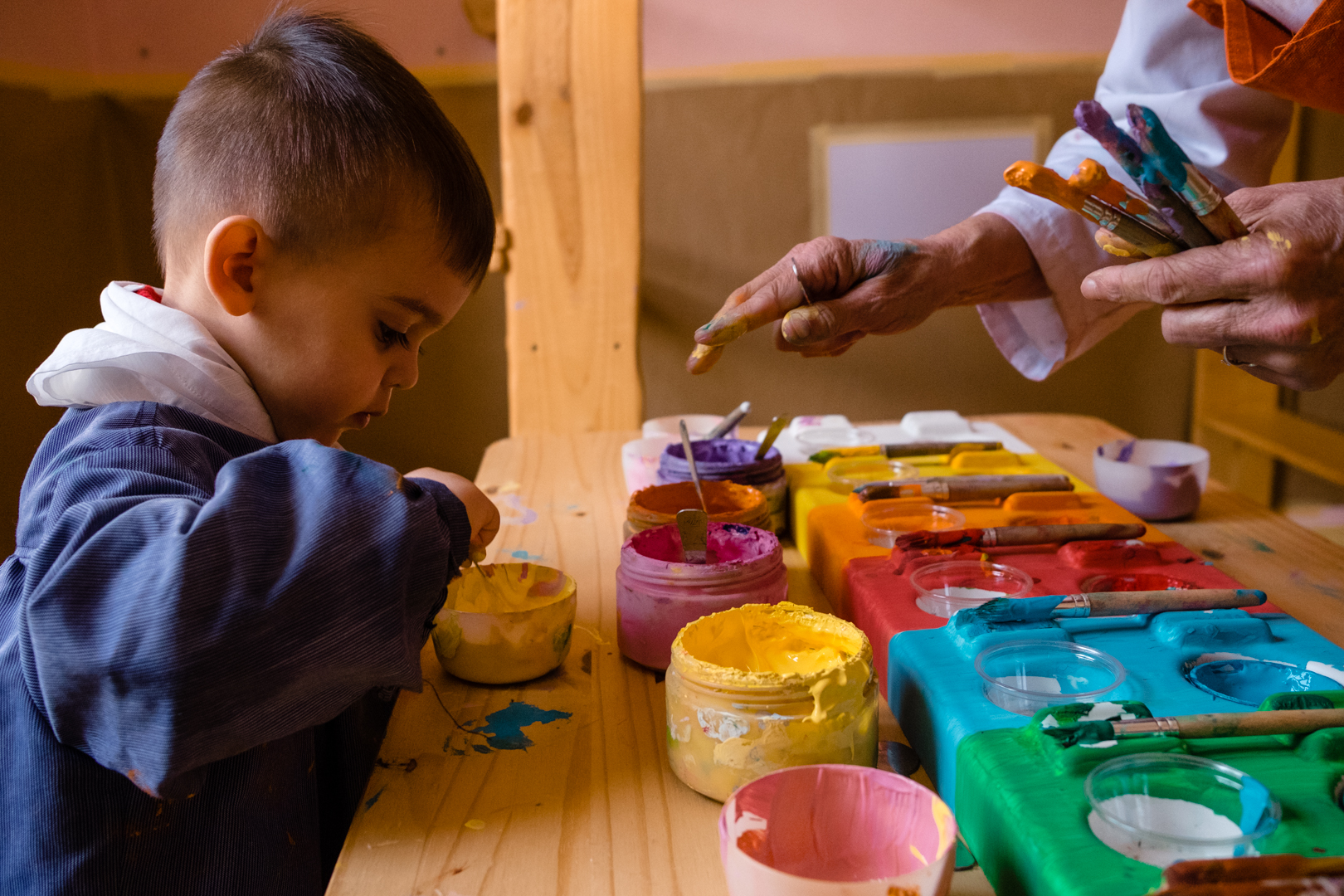From 3 to 5 years.
We welcome the child in a respectful and loving way, being aware of the delicate stage they are going through. For this we will take into account their maturation state, so we can accompany their development through participant observation: the teacher observes while working and caring for the little ones.
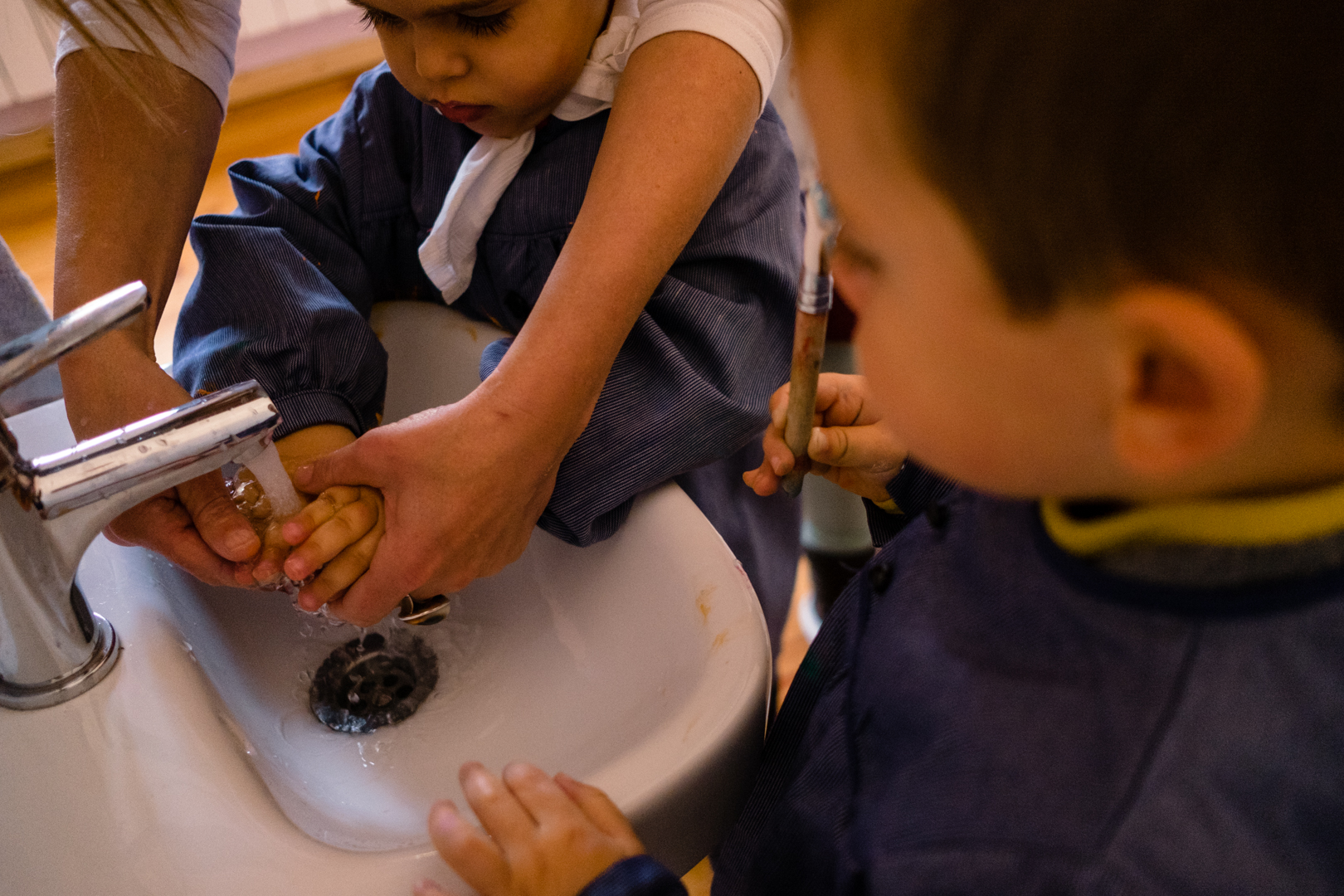
We work in a homely and close atmosphere, always with a deep love and respect for children themselves. As teachers we have a treasure in our hands: childhood. It is the most important stage in the life of a human being, which will lay the foundations of what will be the adult to come. Ratios are limited; thus, the teacher has the possibility to give individualised attention and to be able to accommodate the needs of all children.
We work from the Waldorf Pedagogical approach and study in depth the evolutionary development of the human being; it is the basis of our daily work. But our training also welcomes the latest advances and studies on child development. Relevant authors in this field are Emmi Pikler and Sally Goddard. According to her research, movement and free play are the basis of development on an emotional and cognitive level, that is, mental and emotional maturity go hand to hand with physical maturity.
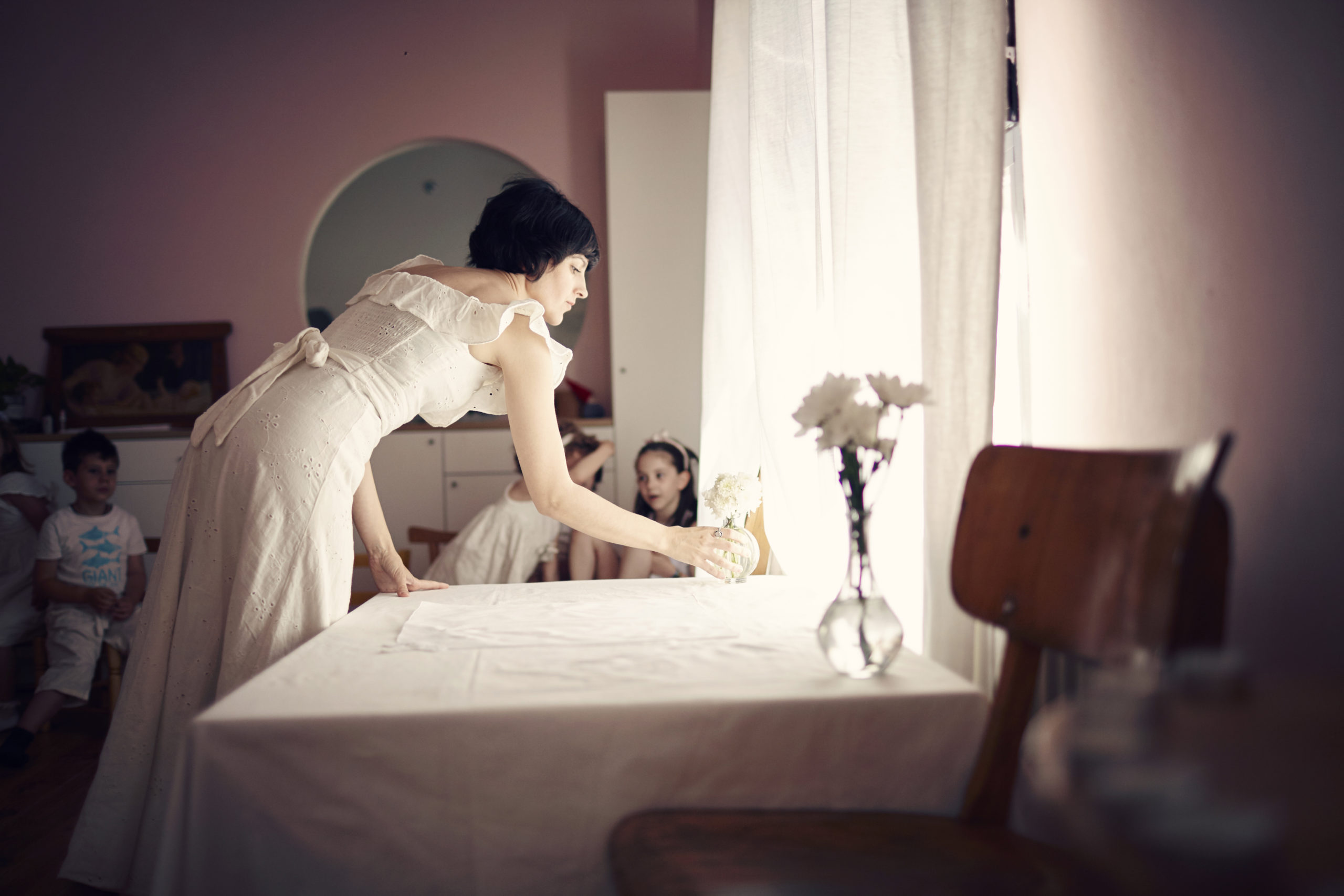
Jean Piajet’s works are also important in our field of study; he knows, like no other, the child’s learning and mental maturation process, but Rudolf Steiner has taken a further step, managing to correlate the psychological results with the corresponding physiological ones.
According to him, it is necessary to know exactly how our body develops throughout the childhood years, since our body is the vehicle that serves all our thoughts, emotions and actions, and if something fails in this vehicle, neither our psychological functions proceed correctly.
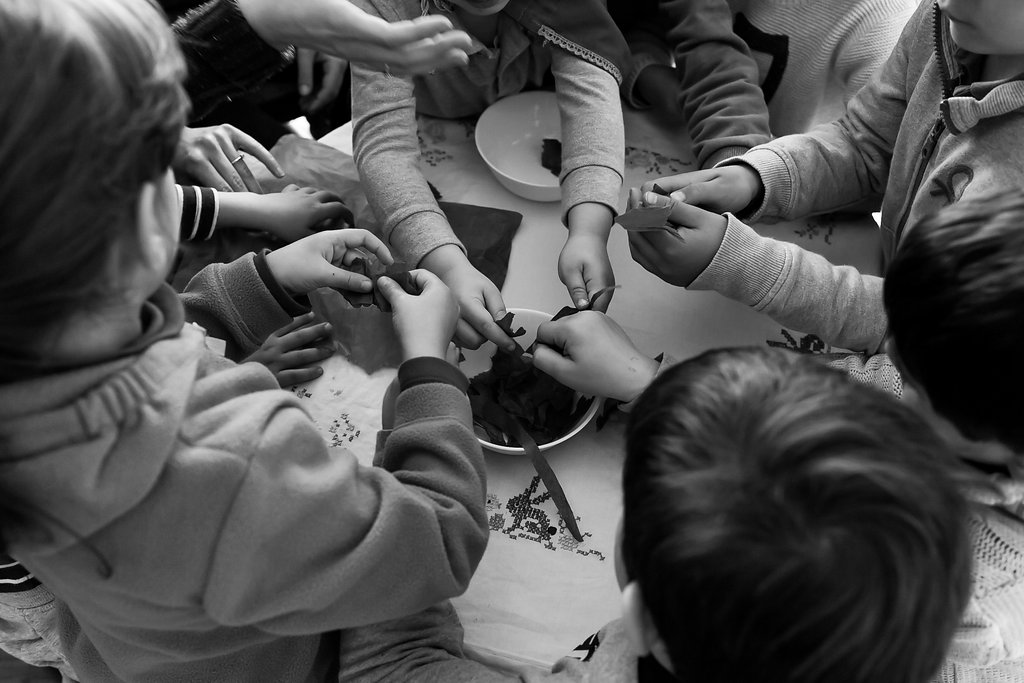
As teachers, we must promote an environment of play and coexistence that awakens in the child all impulse to play and move freely, for this we take into account some principles in the development of day to day in a children’s space:
Children learn by imitation: they absorb the environment around them based on «how» they are shown. An adult always has to be a role model worth imitating; The little ones imitate what we do or say, but most importantly, how we are inside; This is why the teacher’s inner work is so important in this Pedagogy.
Children are sponges that absorb both good and bad with their whole being, hence the importance of taking care of every gesture, word, expression, thought and emotion. When we enter the classroom to work we will do so with a «clean look» and free of prejudices, so we will be in a position to let out those individualities that we have before us.
Let us not forget that the true process of educating occurs when it arises from the inside out: «The child will have the interest of playing and moving freely, as well as being actively involved in each activity, and making a healthy bond with the educator, if the environment encourages it»; by environment we mean both the physical and the emotional and mental.
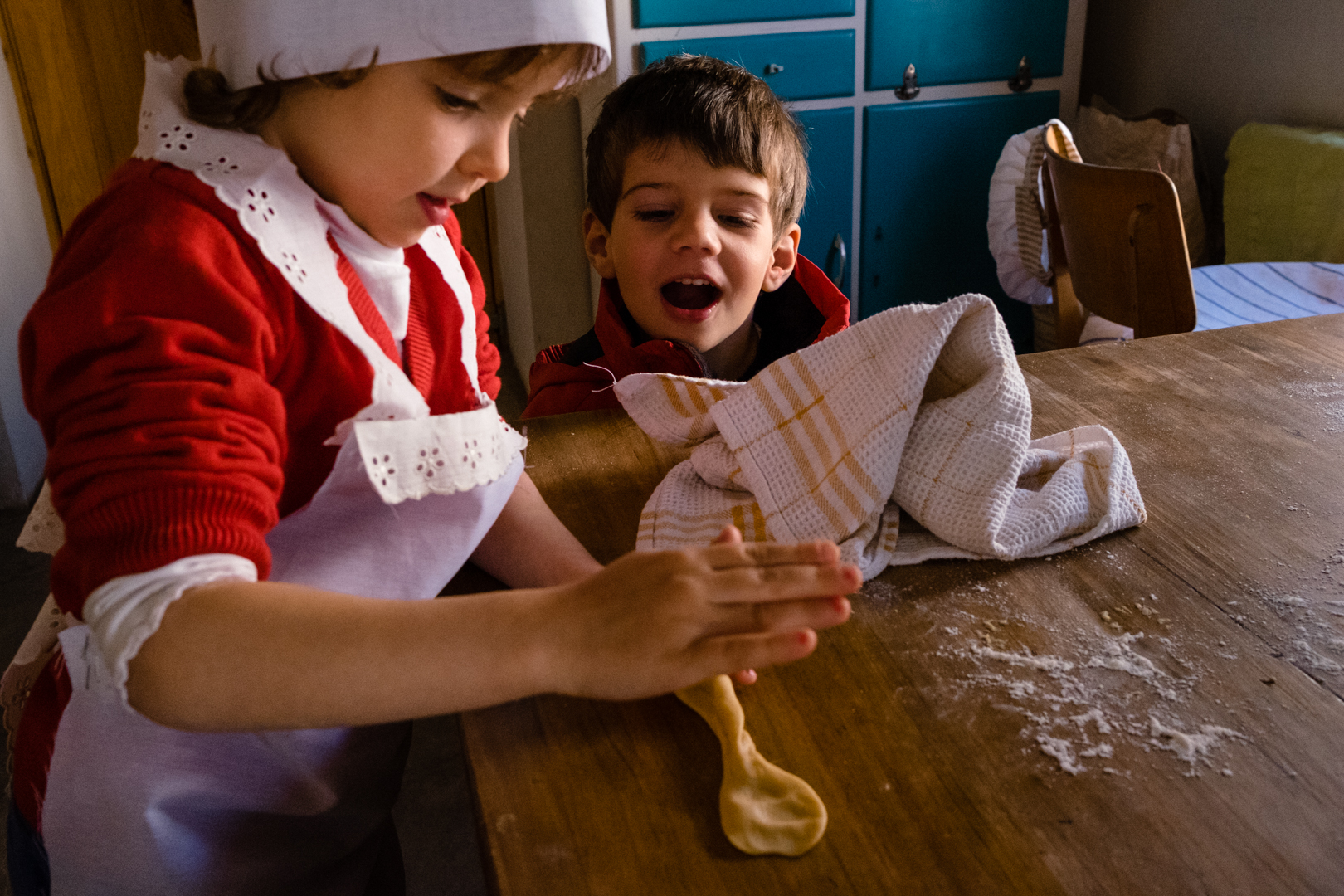
We work based on certain limits, always based on respect and love. Within these limits there are some that should never be exceeded*; if done, it will be resolved in a coherent and respectful way, without ever judging any child for it.
* Physical or verbal violence towards his companions, towards himself, as well as another living being: animals, plants, etc.
* Break materials, toys or the natural environment that surrounds them.
We must give children healthy role models who can embrace them in conflict situations.
The day to day in the classroom runs based on a rhythm, based on moments of expansion and concentration, like breathing itself: inhale/exhale. We have a daily, weekly, monthly and annual rhythm. As human beings we are connected to the rhythms of nature, rhythms and physiological changes, etc. We are not separate beings from the world, we are connected with everything around us; working in this way encourages children to integrate learning in a coherent, clear way, and to mature and develop in a healthy way.
1. Concentration activities are those that take the child to their interior: artistic activities such as watercolour painting and wax blocks, modeling with beeswax, kneading bread, knitting, songs, rings and finger games, stories… as well as those of the day to day: food, cleaning, collaborating in the cleaning and order of the classroom, etc.
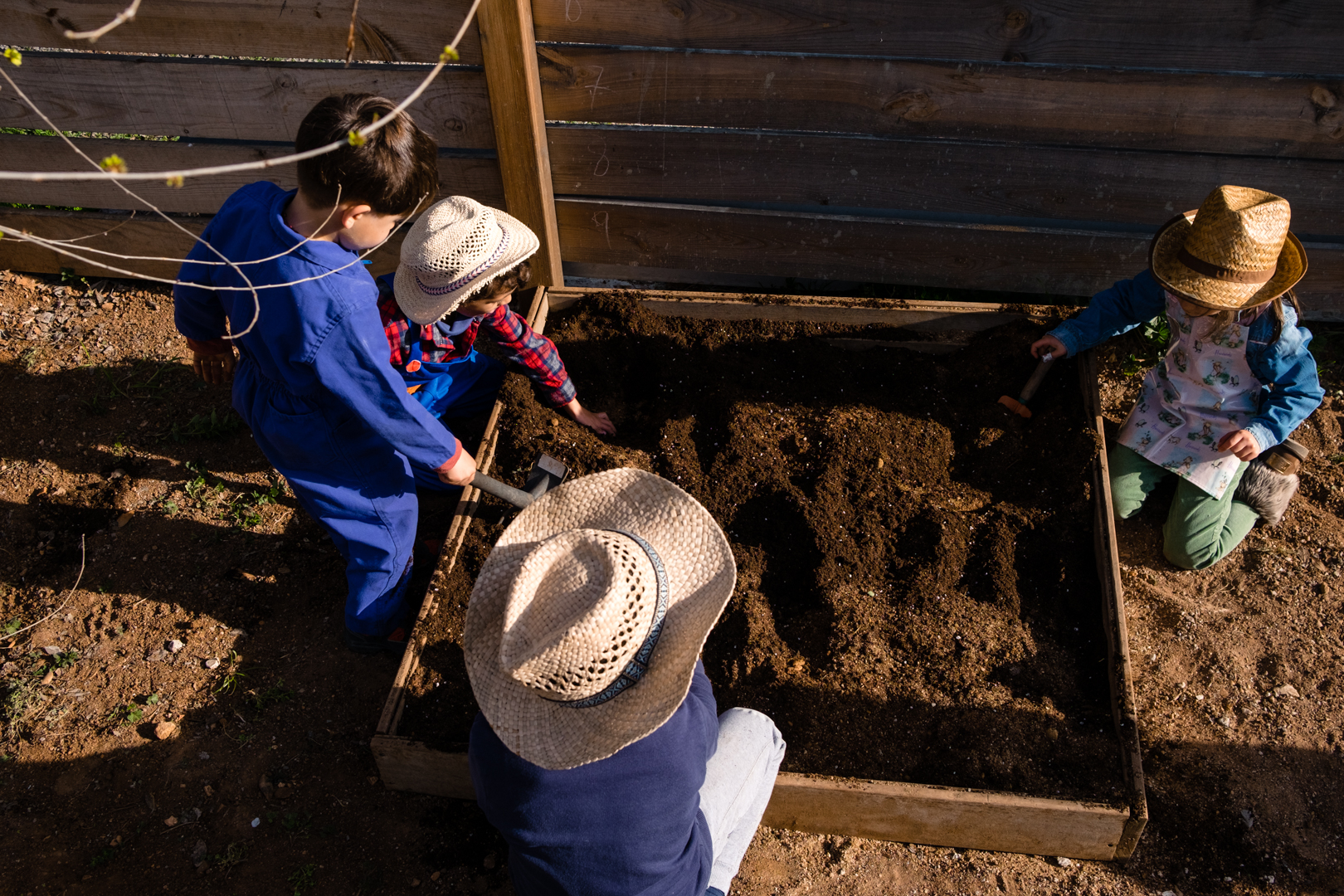
2. Expansion activities are those related to movement and free play, which must take place without intervention by the educator and without supervision. Children should feel free and not self-conscious in every movement they undertake, from their own will and interest. We must protect and maintain as masters the joy of play and the drive to move freely; on this will depend their training as free human beings, interested in everything that happens in the world, as well as active people in terms of knowledge and learning of everything that surrounds them. The joy and the desire to learn are born in early childhood.
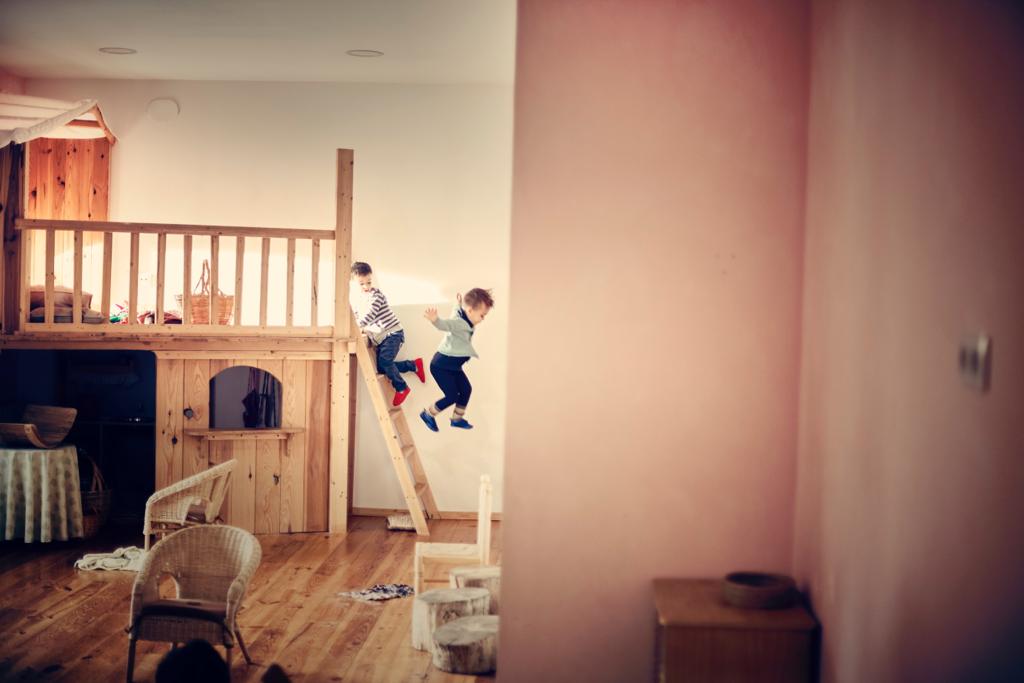
The teacher performs an «active» observation in the classroom: while doing the homework (cleaning, cooking, artistic activities, attending the needs of children, etc.) he/she is observing the children objectively; this favors that the children have a healthy and trustworthy bond with the educator, not feeling «watched».
We take great care of the beauty of the work area; this has a positive impact on the development of children’s senses. Harmony in color, shape, texture, light… is preserved in the classroom so as children can find internal and external balance. We know the importance and influence of a caring and beautiful environment in the development of the future child’s aesthetic qualities. An adult can appreciates beauty in everything around him, if he has grown up in a harmonious environment during his childhood.
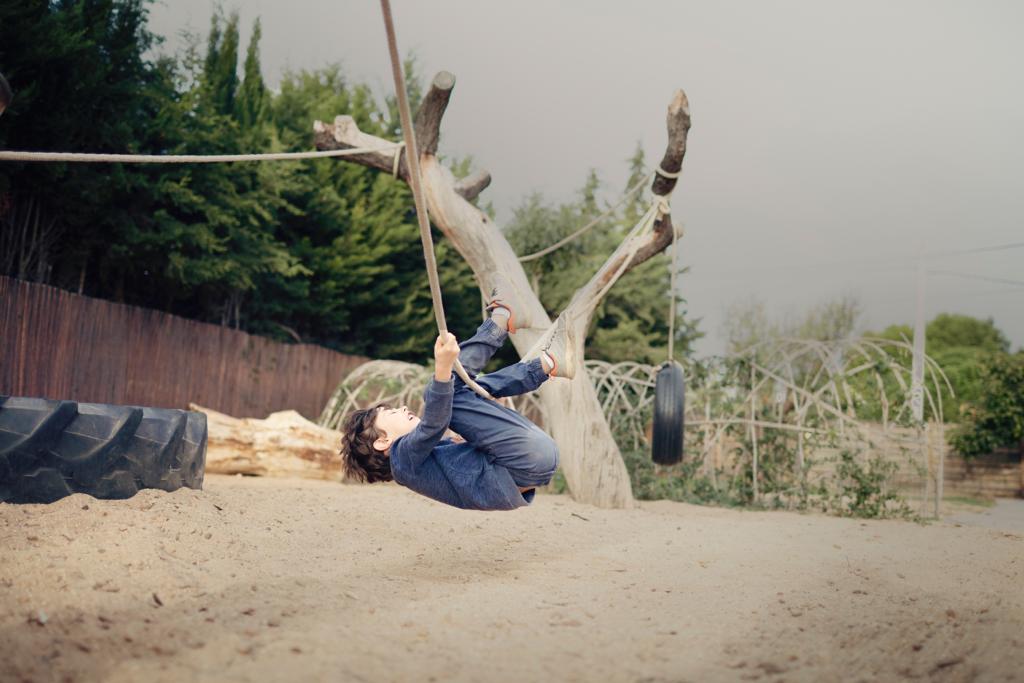
We use natural and ecological materials. We always try to ensure that children are connected to the natural environment both inside and outside the classroom. That develops an ecological awareness and environmental respect built to last a lifetime.
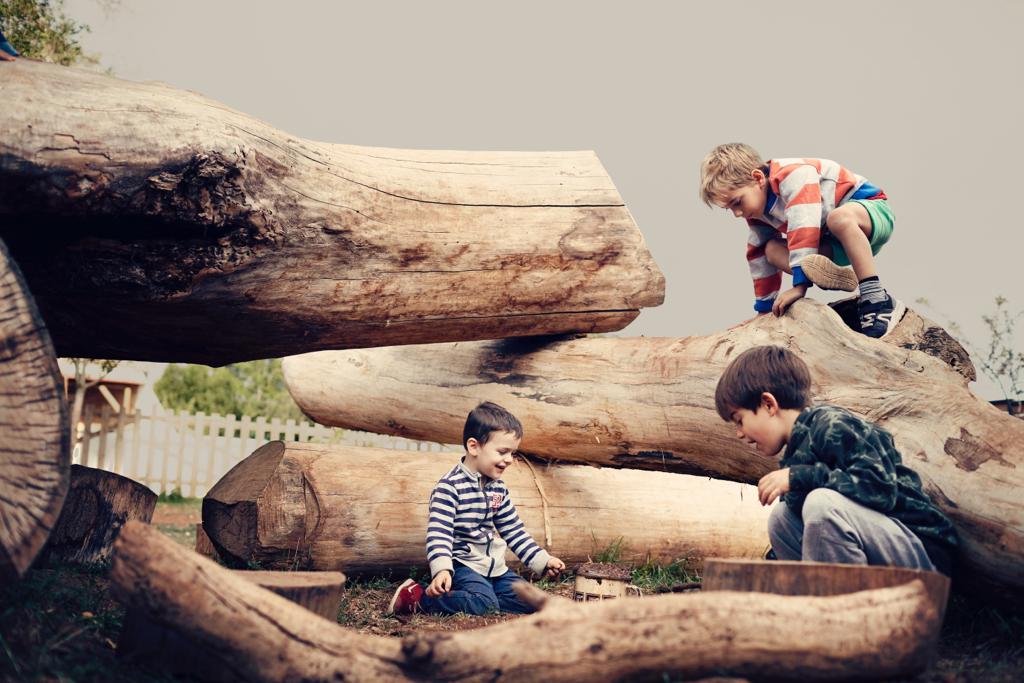
We try that most of the toys do not have defined shapes, in order to let the children create internal images on their own, as well as the development of creativity and imagination: wooden blocks can be a tower, a house, a bridge, a train, etc. Wooden toys also promote the development of the senses and invite them to play with them.
We receive children every day with respect and love. We accompany and help them if required. We are aware, as teachers, that in front of us we have very different individualities, and that children also come to teach us. We should have an open mind and a clean heart to guide them, having in mind that a true education flourishes when individuals are willing to learn and teach each other, no matter how old they are or the knowledge they have already acquired. Therein lies the «MAGIC» of the Waldorf Pedagogy.
*In this text, references to teacher and children are used interchangeably, referring equally to both sexes in all cases.


